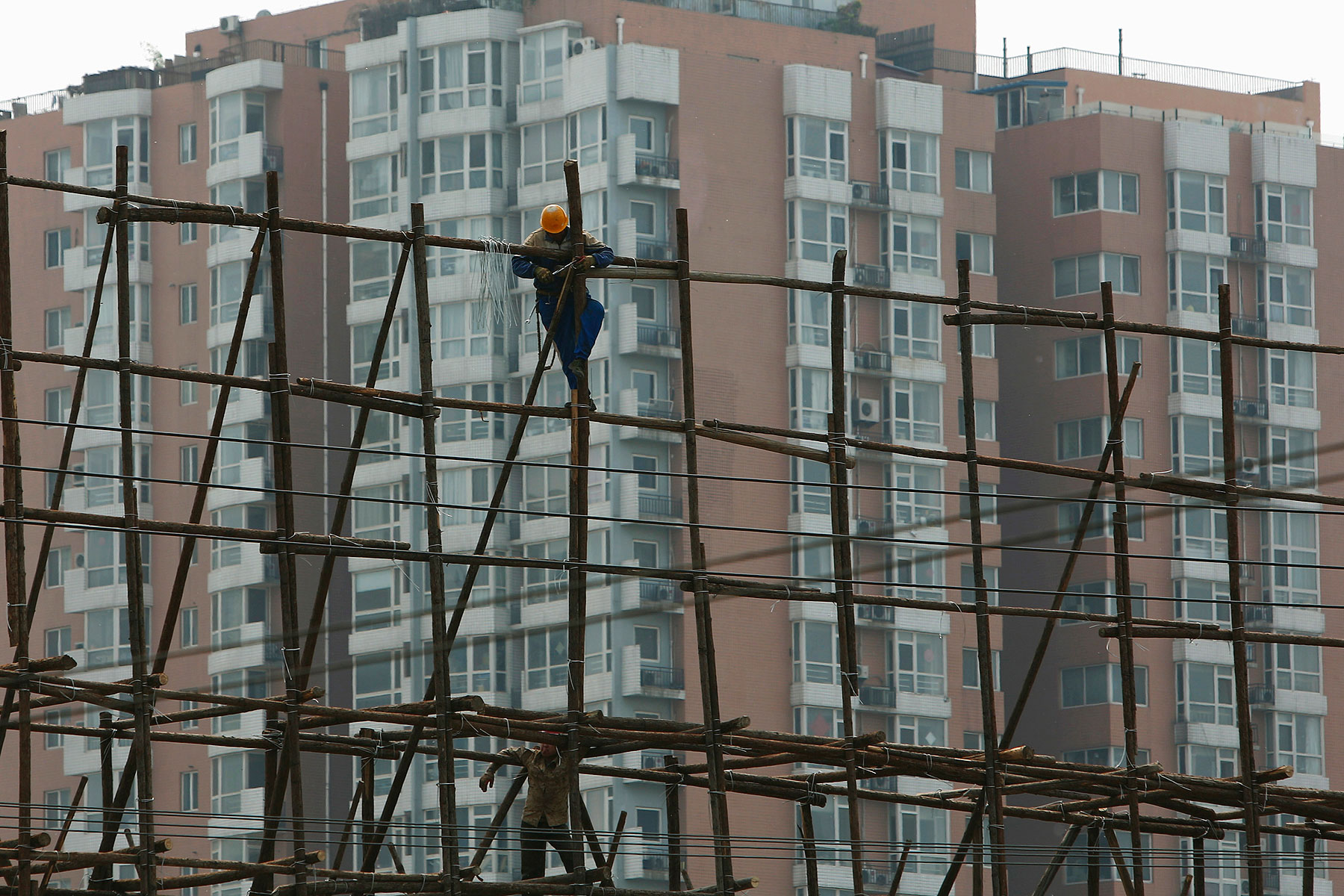
You know a property market is in trouble when developers stage long-jump contests to attract buyers. That’s what happened earlier this month in the eastern city of Nanjing. Looking to sell apartments in a new residential complex, a local newspaper reported that agents from the developer, Rongsheng Group, lined up potential customers behind a queue and asked them to leap forward. Those who jumped the farthest got the biggest rebates — up to $1,600.
Chinese newspapers these days are riddled with such tales of desperation. On May 9 in the central Chinese city of Changsha, pretty girls were enlisted to hand out 50,000 tea eggs to lure people into a housing fair. Developers in Shenzhen and Fuzhou are offering to sell apartments with no down payment. In Hangzhou in April, two real estate agents competing for buyers got into such a vicious fistfight that the police had to intervene.
Are we witnessing the end of China’s great property boom? For years now, some analysts have warned China was in the midst of a gargantuan property bubble, ready to burst at any moment, with dire consequences. But Chinese real estate defied the naysayers and continued to soar. Both developers and customers, bypassing restrictions imposed by policymakers to constrain the industry, continued to build, invest and propel prices higher.
Now, though, the inevitable reckoning may have finally arrived. Massive oversupply combined with a tightening of credit orchestrated by the government appears to be crushing the market. Government statistics show that the amount of unsold commercial and residential property hit an all-time record in March. “We are convinced that the property sector has passed a turning point and that there is a rising risk of a sharp correction,” analysts at investment bank Nomura commented in a May report.
Falling apartment prices spell bad news for China’s economy. Real estate is one of the main drivers of China’s growth, with property investment accounting for 16% of GDP by Nomura’s calculations. A downturn could dash hopes for a recovery of the world’s second largest economy, already suffering through its worst slowdown in more than a decade, and the impact would be felt across the world. Real estate investment in China affects global prices of commodities like iron ore, so a slowdown can send shockwaves from Australia to Brazil. Falling property prices could also subvert the wealth of the Chinese middle class, dampening consumption of everything from cars to coffee. That could hurt companies like General Motors, McDonald’s and Starbucks.
Beijing’s leaders got themselves into this mess with their go-slow approach to reform. In the country’s tightly controlled financial markets, the average Chinese citizen has few options when investing his or her newfound wealth. That has made property option No. 1 for investors, pushing up the market to dizzying heights. Now the declining market presents some tough choices for policymakers. A sharp downturn in property could lead to serious financial problems at the nation’s indebted developers, causing bad loans at the banks to rise. Developers that borrowed from the country’s poorly regulated shadow-banking industry could cause even worse problems for the financial industry. Depressed property could also present the government with a major social issue. With so many Chinese families having invested their savings in apartments, falling prices could lead to widespread discontent.
There is ample evidence to suggest that the deflating of Chinese property could turn very ugly. A Barclays economist warned that the “risks of a disorderly adjustment are real and rising.” Nomura points out that new housing starts, an important indicator of where the market is headed, plunged in the first quarter of 2014. Property sales declined too in 2013. “It is no longer a question of ‘if’ but rather ‘how severe’ the property market correction will be,” the investment bank asserted.
The question now is: What will Beijing do? So far, the country’s top leaders have been (wisely) allowing China’s overall growth to slow while they focus on controlling debt and reining in the out-of-control financial sector. A tumbling housing market, however, will put more pressure on the government to reverse course by loosening credit to pump up growth — a strategy that might alleviate pain in the short run, but only intensify the economy’s long-term problems of debt and excess capacity. The central bank this week already issued guidelines encouraging banks to speed up mortgage approvals and offer reasonable rates of interest for some home buyers.
China’s problems with property shine a spotlight on how the country’s continued foot-dragging in liberalizing and strengthening its financial sector and altering its investment-obsessed growth model are creating major threats to its stability. And it is yet more evidence of how China’s role in the world has jumped from being a critical support for growth amid a disastrous downturn in the West, to becoming a primary risk to the health of the global economy.
More Must-Reads From TIME
- The 100 Most Influential People of 2024
- The Revolution of Yulia Navalnaya
- 6 Compliments That Land Every Time
- What's the Deal With the Bitcoin Halving?
- If You're Dating Right Now , You're Brave: Column
- The AI That Could Heal a Divided Internet
- Fallout Is a Brilliant Model for the Future of Video Game Adaptations
- Want Weekly Recs on What to Watch, Read, and More? Sign Up for Worth Your Time
Contact us at letters@time.com